Step into Petit Trois on Ventura Boulevard in Sherman Oaks, and Los Angeles feels far away. Instead, you’re in Paris, greeted by black-and-white checkered floors, mirrors to bounce the globe-dome lights, and seafoam green bench cushions that flank the wall.
Then, there’s the painting. Next to the bar hangs a portrait of the man himself: Chef Ludo Lefebvre as a masterful rendering of King Louis XIV. It’s a cheeky “enchanté” in tights.
If you don’t already know him from his L.A. restaurants—the fried chicken concept LudoBird, fine dining Petit Trois, and Michelin-starred Trois Mec—then you may have seen Lefebvre on television. From a star turn on ABC’s cooking competition The Taste, and the Sundance Channel’s Ludo Bites America, to appearances on Top Chef, Top Chef Masters and Mind of a Chef, he’s hard to miss.
But such recognition can be a double-edged sword when you’ve set out to cook, focused on entertaining through what you create and not necessarily through who you are. For someone who has trained as classically and as rigorously as the Burgundy-born Lefebvre—starting with an apprenticeship at age fourteen and learning from culinary masters like Marc Meaneau, Pierre Gagnaire, Alain Passard and Guy Martin—achieving success in today’s culinary climate requires more than a pedigree. That’s why the self-branded “America’s French Chef” is only half of the story; Lefebvre owes the rest to his wife, Krissy.
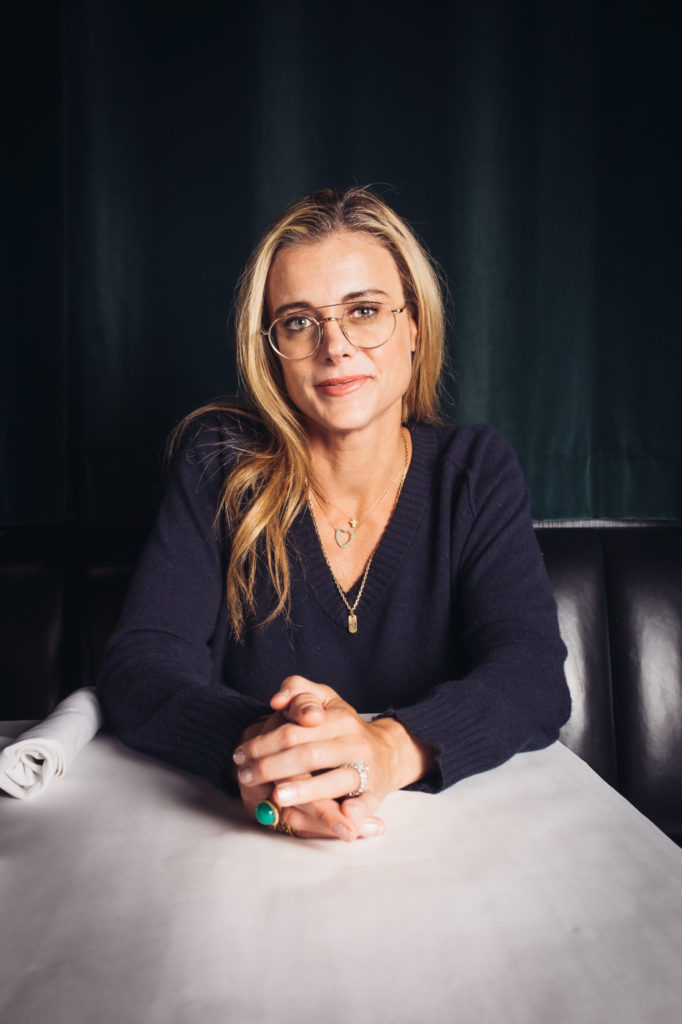
“It didn’t use to be a sexy career,” Krissy Lefebvre tells me one morning when I meet the husband-and-wife team at Petit Trois. “When I married Ludo, I wasn’t marrying some celebrity chef. I didn’t even know what that was. I married a cook.”
Krissy, who was a practicing attorney when she first met Lefebvre, is engine to the chef’s machine. Not only did she help orchestrate and run LudoBites, the pop-up dinners that launched Lefebvre’s talent mainstream, but she now operates as executive producer for everything beyond the kitchen—including Ludo à la Maison, the cooking show distributed through Food & Wine that Lefebvre hosts from his home.
“Every time he goes on broadcast television, he gets ‘the crazy French man’ edit where all he does is kick and scream,” Krissy describes, herself well-versed in reality television after being a contestant on season six of NBC’s The Apprentice. “I thought it would be nice if people saw the softer, gentler side of Ludo. That’s how we came up with à la Maison.”
Now, the couple sits down for a candid conversation about food, family, and what it’s like to run a hospitality business in the increasingly changing landscape of technology.
What was the process of creating a brand out of a person who you know and love?
Krissy: There’s never been a master plan. When we did LudoBites, it was literally for survival. Neither of us were working at the time and it was our sole paycheck. We would put everything we had into a pop-up, make a handful of money, take a few months off, and then do it again. That just evolved into something else.
Ludo: I did not think too much about that. Some chefs now are more entrepreneurial, less in the kitchen. I do that too. It’s very important for me to say, “Yes, I want to open more restaurants in different locations where we need good restaurants.” But I’ll be honest with you, it’s not just about money for me. Cooking is my passion.
Where does that passion come from, and why does it matter to you?
Ludo: It’s part of my culture. I grew up around food, around people who care so much about cooking. [I would] see my grandma and mom cooking with joy and love how it gives pleasure to people. I need to do that too. I need to replicate that.
I love to cook with my son Luca because he loves to cook, and I love to give him memories. My grandma and my mom gave me so much memory with food. I still remember a lot of things, and I want to do the same thing with my family. And with people too. I want them to remember, “We went to Petit Trois [gasp].” It’s just important to me.
I [didn’t go to] school to be a businessman. I went to school to give pleasure to people. That’s the way I am still. [Los Angeles chef/entrepreneurs] Jon [Shook] and Vinny [Dotolo] are my partners, and it’s good for me. I’m still involved in my restaurant and I make decisions, but cooking, really cooking—plating the food, being on the line—that’s my passion.
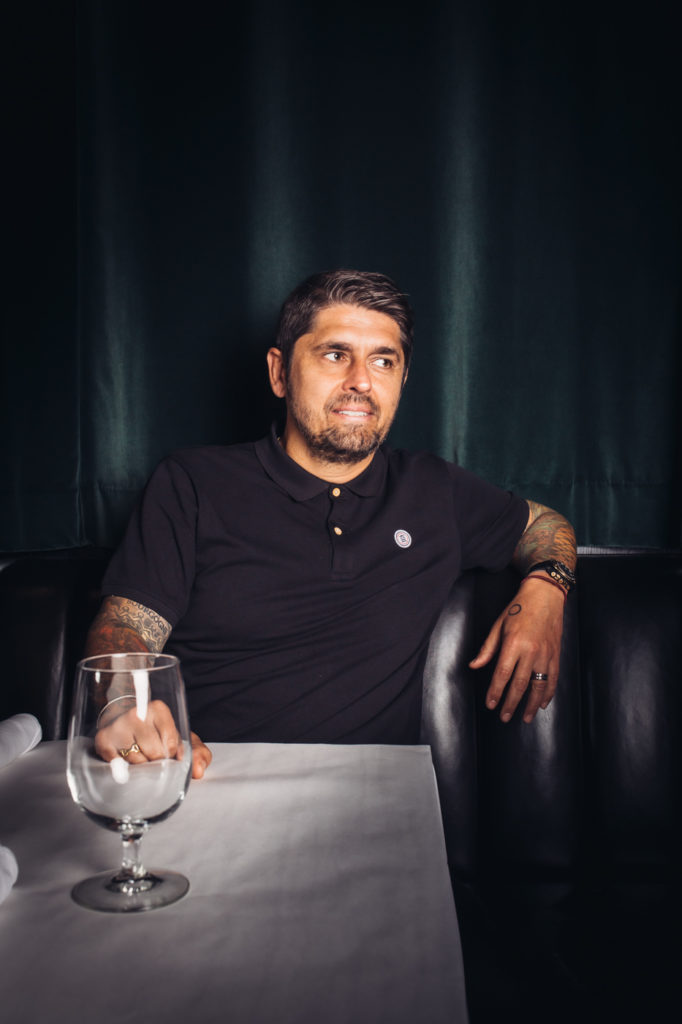
What is your hope for a show like Ludo à la Maison?
Ludo: I love to teach people how to cook and I’m very happy people have access [to learn how to do it]. I feel very responsible to teach what I learn. I need to pass that to people.
Do you think of food as art?
Ludo: I don’t see food as art, [but as] something that comes from the heart. Some chefs are really doing amazing things with food now. French food is more from the heart, from passion, and from craft.
Krissy: [Food] has been completely bastardized by Instagram now because you can make the most beautiful plate of food, but you have no idea what it tastes like. It’s become a competition of what looks the most beautiful on Instagram versus how it tastes.
This is the struggle Ludo has in bringing in young chefs, because they don’t really have the desire to cook. They have the desire to make beautiful food that’s going to look great on Instagram. That might get them recognized, but they ultimately don’t have the basic skills and knowledge of the craft.
It’s a problem regardless of what industry you’re in—filmmakers, photographers, everybody. You don’t actually have to study a Canon camera anymore. You pick up your iPhone, take a photo, put a few filters on it, and you’re on a billboard.
But when you’re putting food in your mouth and it’s truly a sensory experience, you can’t fake it. And Instagram fakes it.
Ludo: You still have [young cooks] with passion, but the new generation is not [as] patient. They want to be a chef without that much experience. Skip the discipline or the planning or the stage, and just make beautiful food [without knowing] how to run the business. In all of my restaurants, I don’t always do what I want because it’s a business at the end of the day.
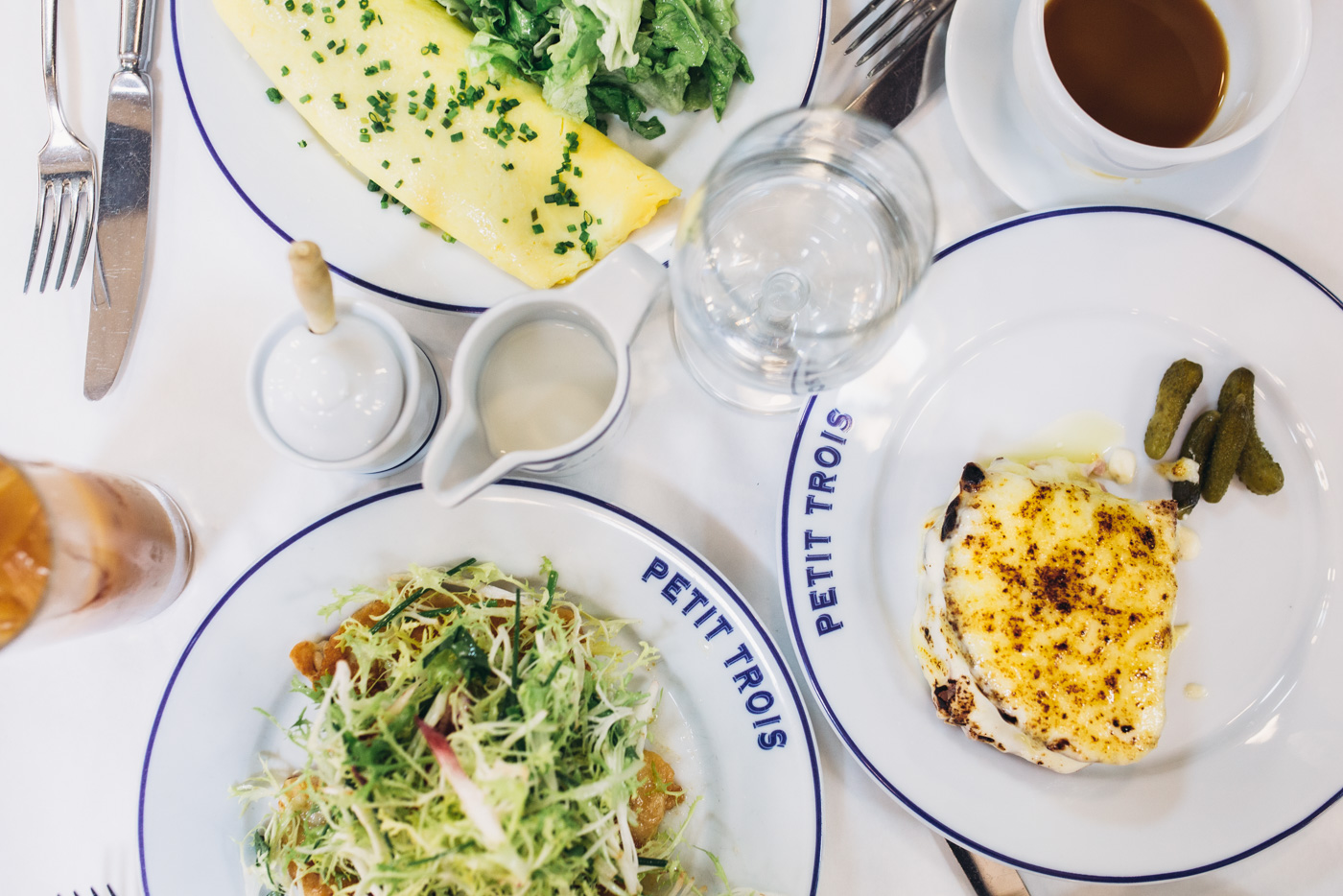
How do you balance working from the heart with the ability to make money?
Krissy: The world has changed so fast and the market is so completely saturated that if you don’t build a presence behind what you are doing, it’s really hard. And it’s really unfortunate because there are some talented people who maybe just aren’t “in front of the camera” people and don’t want that part of it. But it’s almost impossible to have without it.
Ludo: Now it’s not just [about] the talent.
Krissy: We may be part of a larger conglomerate, but we don’t run that way because he is a cooking chef and wants to be hands on. We’ve also built a lot of momentum behind the name, which also creates more pressure.
Ultimately, you have to put butts in seats. I could do the greatest marketing in the world, but if people come in and have a bad experience or don’t like the food, then it’s all for naught. Unless [Ludo] just wants to be on TV, which he doesn’t.
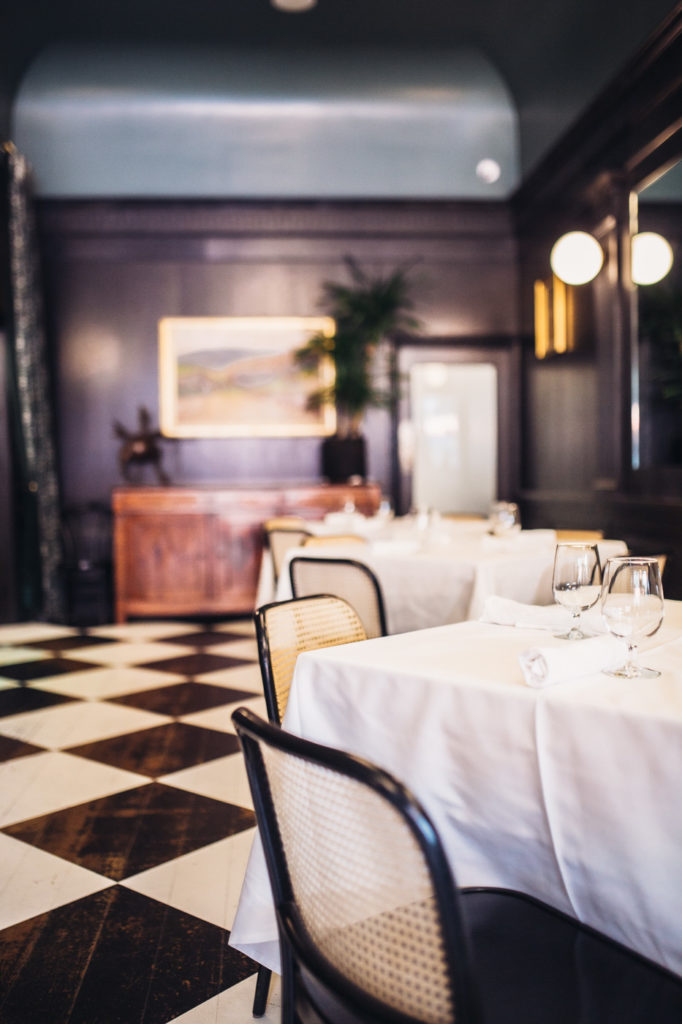
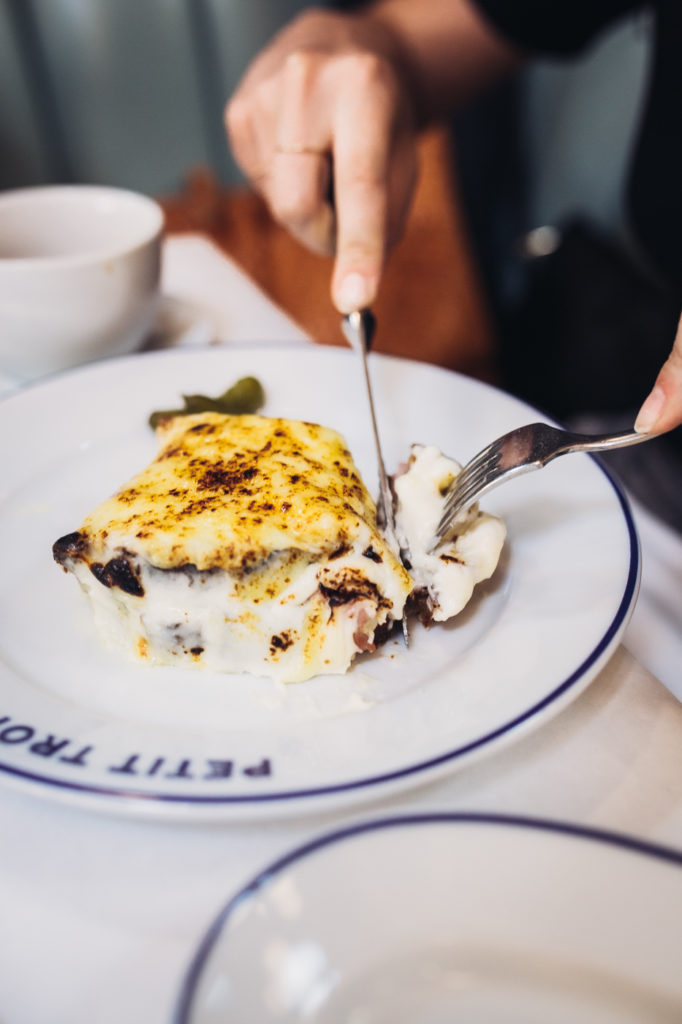
How do you want to impart a sense of hospitality to your children?
Ludo: It’s really about trying to repeat dishes. Every Sunday we do some roasted meat or vegetables—something very simple—and make sure we sit together, no phone, and talk about everything. That’s what I want to give to my kids.
Krissy: [Reve, our nine-year-old daughter,] works the hostess stand every time she comes in. Luca [Reve’s twin brother] is behind the bar or in the kitchen.
As parents in particular, for me it’s really about making sure [my kids] have the ability to have human interaction. [Tech] came on so hard and fast that the world didn’t know what to do with this babysitting device, but now we have ten years of it and a generation of people who really don’t know how to communicate.
It has made me aware as a parent that it’s so important to have the ability to look someone in the eye and have a conversation. That’s where hospitality comes from too. [My generation] didn’t have a choice; you were hospitable. You welcomed people into your home. There was never the option that our guests would be doing something other than enjoying the food.
Ludo: I remember the generosity of my grandma, happy to have people at the home last minute. My grandpa would come back with six people for lunch, and my grandma never complained. [She] cooked for everybody.
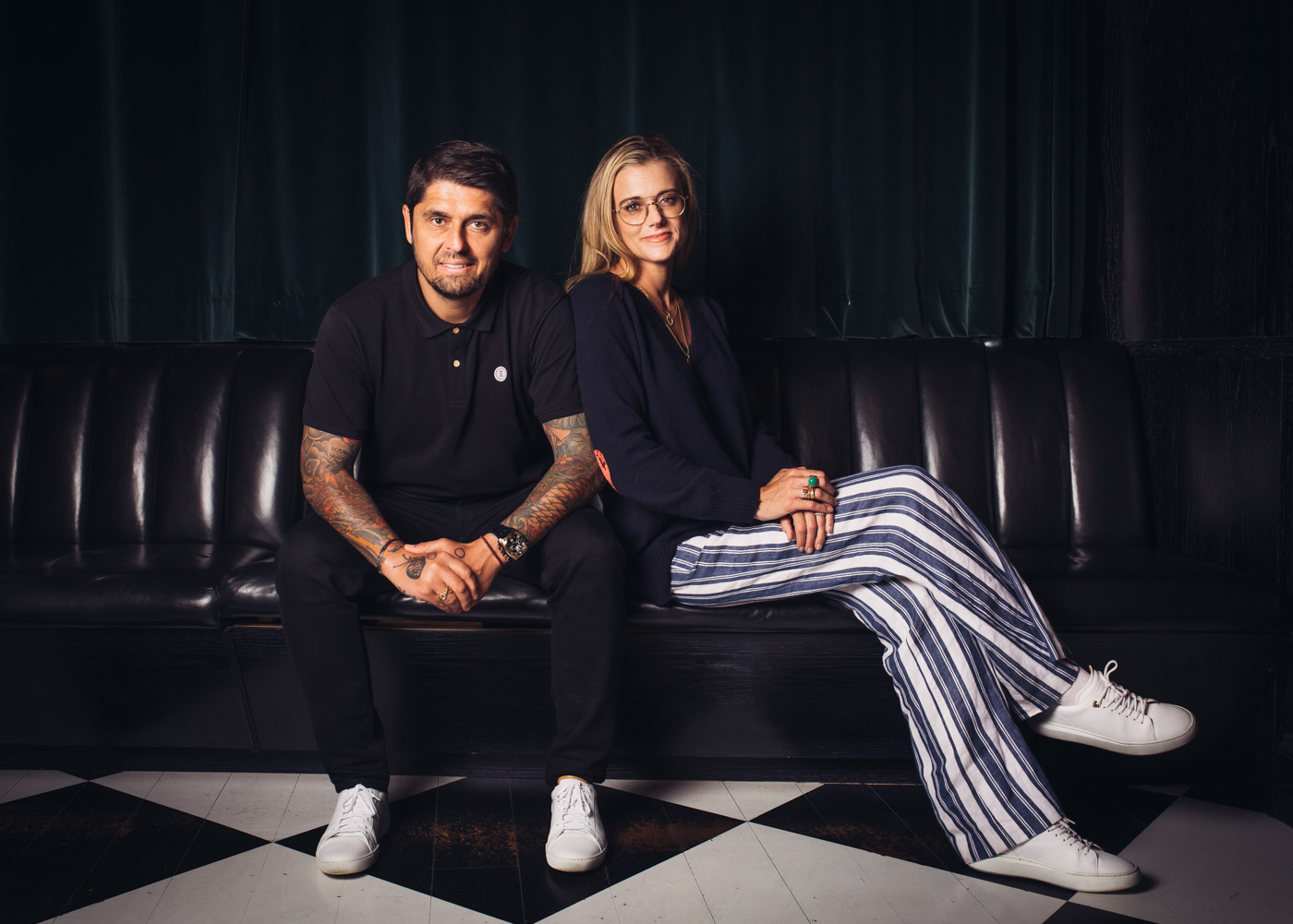
Do you feel pressure to be spokespeople for social good?
Ludo: My message is very clear; it’s in my restaurant. That’s where I speak. In my restaurants with the guests, especially like Trois Mec where we buy the vegetables, we’re responsible about recycling, what we buy, the waste. That’s where I’ll talk with the guests about what I’m doing.
Krissy: There are things we are passionate about and that we’ll speak about, but I’m more of a soapbox person than [Ludo] is. I’ll speak it for him. There’s the balance.
How would you define a meaningful life?
Ludo: It’s really to make your own decisions and do what you love. Be you and do what you love.
I want people to remember my food, [and maybe] some dishes. When people go to a restaurant and they remember what they eat and what they talk about it, that’s the best.
Krissy: Now that I have children, it’s knowing that I raised good adults. The most important thing for me is trying to take it back a little bit, really making sure my children know how to talk to people and be passionate. They will be my legacy. They will be my meaningful life.







Our comments section is for members only.
Join today to gain exclusive access.